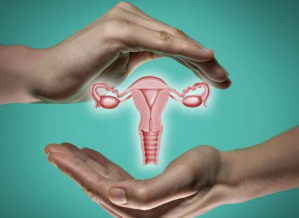
Do you make it a point to drink eight glasses of water each day? If you haven’t yet, now is an excellent time to begin. While not drinking enough water has a number of negative consequences, it is also critical that we consider “how” this water is ingested. According to Ayurvedic principles, the manner you drink water has an impact on your overall health. Isn’t it intriguing? Ayurveda has a number of views on how to drink water that have been followed for ages.
Ayurvedic Water Drinking Tips
1. Sit Down Instead of Standing to Drink Water
It is preferable to sit and drink water instead of standing. Standing and drinking upsets the body’s fluid balance, which can lead to an increase in fluid collection in the joints, producing arthritis. Sitting and drinking relaxes your muscles and nervous system, making it easier for your nerves to digest meals and other fluids. While sitting, your kidneys also speed up the filtration process.
2. Do not drink all of the water at once.
Take tiny sips, swallow, breathe, and repeat throughout the day instead than gulping down big amounts of water in a single breath. This holds true even when you’re eating. “There are three doshas in the body – vata, pitta, and kapha,” says Ayurvedic specialist Dr. Akhilesh Sharma, “and how you take water must be in accordance with these doshas.” Only drink water one hour after having a meal if you have vata prakruti. This will aid in the digestion of their diet. People with pitta prakruti can take small sips of water throughout meals to jumpstart their digestion, whereas those with kapha prakruti should drink water before eating to feel full and not bloated.
3. Drink water at room temperature; warm is even better.
Avoid ice-cold water, which disrupts the digestive process and extinguishes the fire. Constipation is exacerbated by cold water, which reduces blood circulation to various organs of the body. Drinking tepid water can aid in appropriate digestion and metabolism, resulting in weight loss, bloating relief, and pain relief. Warm water, according to Dr. Akhilesh, helps to manage cholesterol levels while also keeping the arteries clean.
4. Only drink when you’re thirsty.
When your body is in desperate need of water, it gives you signs. Water should only be consumed when you are thirsty, according to Ayurveda. Because each person’s body is unique, consuming the same amount of water cannot be recommended for everyone. Because the body cannot absorb too much water, it is critical to recognise your body’s thirst signals. Make sure you’re not too full to measure your own drinking system.
5. Recognize the Signs Your Body Sends You When It’s Thirsty
Your body sends you signals when it needs water. One is the colour of urine; dark yellow pee indicates dehydration, whereas clear, straw-colored urine indicates a hydrated and satisfied body. One of the signs of a dehydrated body is chapped, dry lips. Keep an eye out for these signs, as they could indicate a health problem.
Hope it helps!


